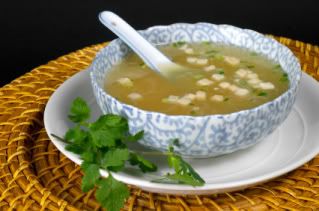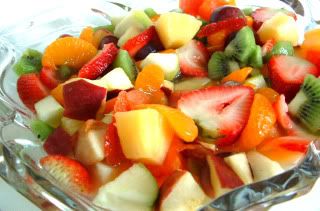Last week I wrote about Good Cholesterol and Bad Cholesterol and gave some tips on how you can prevent illness by managing your cholesterol levels. If you’re one of the millions of people worried about high cholesterol or if you’re taking cholesterol medication, you may be looking for specific advice on what to eat. The following 3 diets may help cut “bad” cholesterol, raise “good” cholesterol, and improve cardiovascular health.
Note: There are tons of diets out there, and plenty that will help reduce the risk of heart disease (most vegetarian diets are a good place to start). These are just my 3 favorite dietary theories for reducing “bad” cholesterol levels. Remember to listen to your body and check with your doctor before making any major changes to your diet or exercise routine. There are upsides and downsides to every diet.
3 Diets that Fight Cholesterol
(Specific dietary guidelines referenced from Integrative Nutrition by Joshua Rosenthal.)
Macrobiotics Diet(Specific dietary guidelines referenced from Integrative Nutrition by Joshua Rosenthal.)
This diet focuses on eating all natural whole foods and balancing your “yin” and “yang.” Macrobiotic dieters eat 40-60% whole grains, 25-30% fresh vegetables, 5-10% beans, 5-10% soups, and 3-5% sea vegetables. Plus you can eat fish a couple times per week. They avoid: dairy, refined sugars, chocolate, meat, eggs, coffee, hot spices, nightshade vegetables, and tropical fruit. Strong focus on Japanese foods. For more information: “What is Macrobiotics?” by Phiya Kushi.

Mediterranean Diet (Laurel’s favorite!)
Focuses on fresh foods, healthy fats, and small portions. It’s a great diet for helping to raise your HDL or “good” cholesterol levels. People on this diet eat lots of fruit, vegetables, nuts, fish, whole grains, beans, and wine (in moderation). They eat less saturated fats found in meat and dairy and very little processed foods, refined grains, trans fats, or refined sugars (if any). For more information: WebMD “Mediterranean Diet” Summary, and ChefMd’s Mediterranean Diet recipes.

Raw Foods Diet
Raw foodies eat only raw foods or fresh food prepared below 116 degrees. They believe high cooking temperatures harm the natural enzymes and nutrients present in fresh food and your body’s ability to absorb those nutrients. This diet is full of fresh vegetables and fruit, seeds, nuts, beans, grains, dried fruits, coconut milk, seaweed, raw chocolate (mmmm), etc. It avoids meat, dairy, and any cooked foods (116 degrees and above). For more information: “Living and Raw Foods FAQ” and Sunfood.com.

I hope you enjoyed this post! I’ll be writing about some more dietary theories over the next few months, so stay tuned!
Wishing you the best,
Laurel
No comments:
Post a Comment